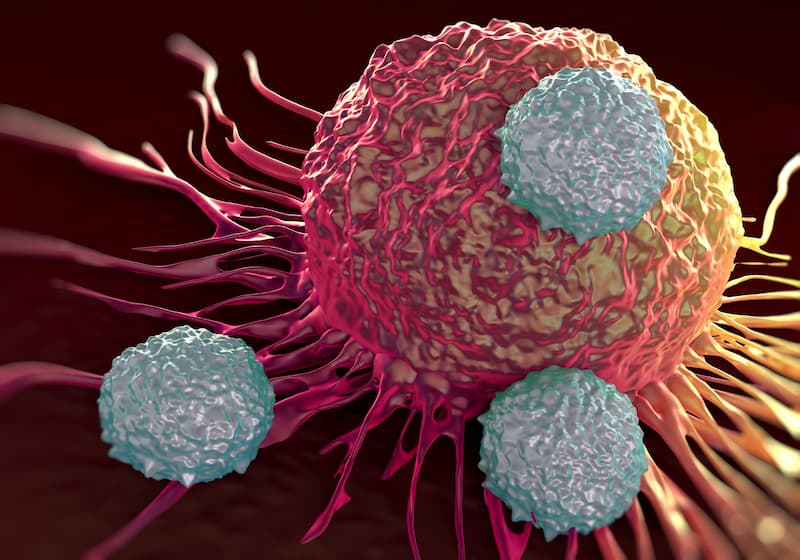Subjective Language May Muddle Data Interpretation in Oncology Conferences
Emphasizing precise terminology in clinical studies may improve the transparency and accuracy of information presented at oncology conferences.
"Implementing guidelines or recommendations for language usage in abstracts and presentations may also help mitigate the use of subjective minimizing terms and foster a more transparent and informative discourse on treatment efficacy and safety," according to Samer Al Hadidi, MD, MS, FACP.

Abstracts presented at major oncology conferences were found to frequently implement subjective minimizing language that may obscure the interpretation of study results and how safe novel treatments may be, according to findings from a systematic review published in Journal of Cancer Policy.
Across 2797 study abstracts (52.8%) that included subjective minimizing language terms, 2291 (81.9%) featured findings on any-grade adverse effects (AEs). Additionally, the most common subjective minimizing language terms included “safe” (69.2%), “well tolerated” (53.2%), “tolerable” (25.6%), and “no new safety signals/concerns” (10.0%). Of these abstracts that included such subjective language, 62.6% reported data on grade 1/2 AEs, 78.0% reported on grade 3/4 AEs, and 8.8% reported on grade 5 AEs.
The mean of the highest reported grade 1/2 AEs was 41.2%; the corresponding mean rate was 25.7% for grade 3/4 AEs. Additionally, the average percentage of treatment discontinuation secondary to AEs was 11.4% (SD 9.5%) in studies that used subjective minimizing language.
“We are hoping others recognize the prevalence and potential consequences of subjective minimizing language in oncology conferences. By shedding light on this issue, we aim to encourage researchers and clinicians to critically evaluate their language usage and adopt a more objective and standardized approach in reporting study results,” senior study author Samer Al Hadidi, MD, MS, FACP, wrote in a statement to CancerNetwork®.
“By emphasizing the importance of precise terminology, we hope to improve the transparency and accuracy of information presented at conferences, ultimately enhancing the understanding of treatment outcomes and safety profiles among healthcare professionals and patients,” Hadidi continued. “Our findings underscore the need for continued efforts to promote clarity and consistency in language usage, thus facilitating informed decision-making and advancing patient-centered care in oncology.”
Al Hadidi is an assistant professor in the Myeloma Center of Winthrop P. Rockefeller Cancer Institute at the University of Arkansas for Medical Sciences.
Investigators of this systematic review searched for published abstracts at the American Society of Clinical Oncology (ASCO), the American Society of Hematology (ASH), and the European Society of Medical Oncology (ESMO) between January 1, 2019 and December 31, 2021. Subjective safety terms of interest included “safe,” “well-tolerated,” “tolerable,” “no new safety signals,” and “no new safety concerns” in the abstract texts.
The review included prospective cohort studies or clinical trials that included at least one of the aforementioned safety terms in the abstract write-ups. Retrospective and/or noninterventional studies; nonhuman studies; case reports or series; studies not including any of the previously described safety terms; and surveys were not included as part of the review.
Investigators reviewed 34,975 records, which included 5299 that featured subjective minimizing language. Overall, 2797 abstracts used subjective language terms while fulfilling the review’s inclusion criteria.
Most studies included in the review were phase 1 trials (45.5%), phase 2 trials (29.6%), and phase 3 trials (7.4%). Additionally, most studies assessed patients with solid tumors (56.5%) and those with hematologic malignancies (37.1%). Overall, 43.7% of evaluable abstracts were found to use 1 subjective minimizing language term of interest, 40.1% used 2, 12.9% used 3, and 3.2% used more than 3.
“Researchers and clinicians should prioritize clear and objective language when describing treatment outcomes, [AEs], and safety profiles to ensure accurate comprehension and comparison across studies. This can be achieved through enhanced awareness and education among conference presenters, authors, and reviewers regarding the potential impact of subjective language on patient-centered care and treatment decision-making,” Al Hadidi stated. “Implementing guidelines or recommendations for language usage in abstracts and presentations may also help mitigate the use of subjective minimizing terms and foster a more transparent and informative discourse on treatment efficacy and safety.”
Reference
Abusamak AA, Abusamak M, Al-Abbadi M, et al. Use of subjective minimizing language at hematology and oncology conferences: a systematic review. J Cancer Policy. 2024;39:100461. doi:10.1016/j.jcpo.2023.100461